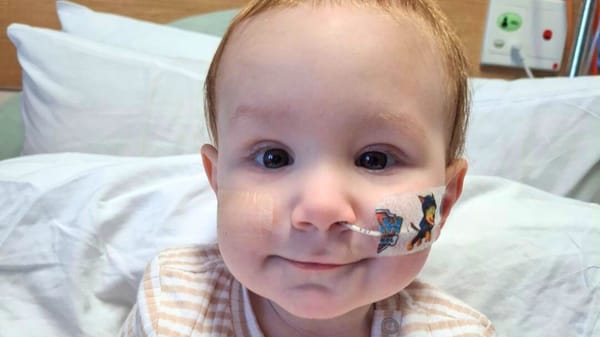Measles case reported in Murray Bridge
A preschooler visited the local swimming pool, GP and hospital before being diagnosed with the infectious disease, SA Health has warned.

Murray Bridge residents are being asked to watch out for symptoms of measles after a case of the infectious disease was reported in a local boy.
Measles may be spread by airborne droplets from an infected person’s breath, or by physical contact with a person’s hands, tissues or other surfaces which may have droplets on them.
The three-year-old visited several locations in the community while infectious:
- Murray Bridge Swimming Centre, from 4-6pm on Friday, March 17
- Murray Bridge Soldiers’ Memorial Hospital’s emergency department waiting area, from 9.30am-1pm on Wednesday and 9-9.45am on Thursday
- Bridge Clinic’s duty doctor/nurses waiting room, SA Pathology waiting room and toilets, from 9.30-11.15am on Thursday
He was then taken to the emergency department at the Women’s and Children’s Hospital in Adelaide, where he sat in the emergency department waiting area between 12 and 12.45pm before his illness was diagnosed.
Anyone who visited those locations during those times – especially people who are not vaccinated against measles – should phone their GP.
Symptoms of measles – a more serious and contagious disease than rubella, also known as German measles – typically do not appear until 10 days after exposure.
Bridge Clinic staff urged anyone who believed they may have been exposed at the clinic to phone them on 0417 801 834.
That was doubly important for people with compromised immune systems, the clinic advised in a Facebook post.
“If you are immunocompromised you may need immunoglobulin, which can be given in the first six days after possible exposure to measles,” its staff said.
What symptoms does a measles infection produce?
A measles infection typically begins to present as a fever, cough, runny nose and sore eyes, lasting three to five days, according to SA Health.
A blotchy rash develops next, usually starting on the head, spreading down the body and lasting four to seven days.
Measles is often a severe disease, and may lead to ear infections, pneumonia or inflammation of the brain in a small number of cases.
Anyone who suspects they or a family member has measles should contact their GP by phone before visiting, so that precautions can be taken to keep the infection from spreading.

SA Health spokeswoman Louise Flood encouraged all locals to check whether their measles vaccinations were up to date.
Most children born in Australia are given a dose of vaccine at 12 months of age, and a second dose at 18 months.
However, people born in or before the mid-1980s may only have received one dose of vaccine, and could be at risk of infection.
Anyone born prior to 1966 would not likely have been vaccinated as a child, but may be immune if they were infected during childhood.
“Immunisation provides the best protection against measles,” Dr Flood said.
“It’s vital that everyone makes sure they’ve had two doses of the measles vaccine to protect themselves and the community.
“If you were born during or after 1966 and haven’t received two measles vaccines, visit your GP or local council immunisation clinic to obtain a measles vaccine.”
This is the first time measles has been reported in South Australia since 2019.
Authorities believe the boy caught the disease while travelling overseas.
- More information: www.sahealth.sa.gov.au.
Your support helps Murray Bridge News tell important local stories – subscribe today.





